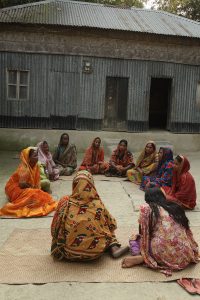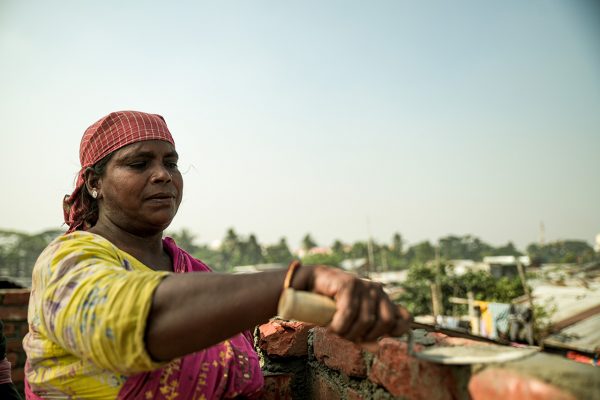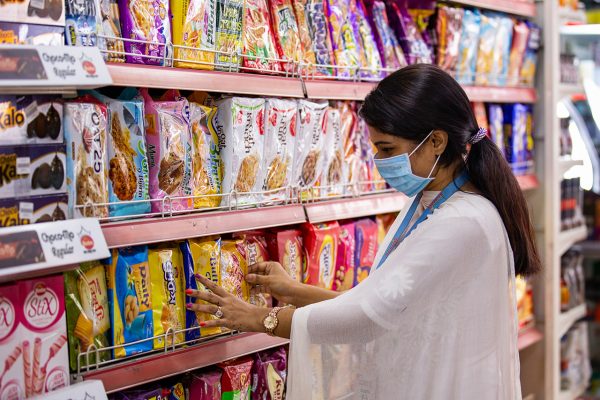Reading Time: 2 minutes
Polli shomaj, or community-based organisations, are designed to empower poor, rural women, by enabling them to raise their voice, and claim their rights and entitlements. These groups are powerful and successful mediums of sustainable development. They actively engage more than one million rural women in 55 districts of Bangladesh.
Polli shomaj, or community-based organisations, are designed to empower poor, rural women, by enabling them to raise their voice, and claim their rights and entitlements. These groups are powerful and successful mediums of sustainable development. They actively engage more than one million rural women in 55 districts of Bangladesh.

A polli shomaj meeting in progress.
But what about all the men? Men are not restricted from participating, however, only a few actually choose to participate. Women do not shun men from the group, but they do outnumber them. In a patriarchal society embedded with systemic inequality, how can this be? Kazi Fattah, programme coordinator, offers one explanation; he explains that this is largely due to an overall perception within communities that these groups are “for women”.
Most men in the communities feel that since these meetings target women, and are run by women, that they are women’s meetings. This is not necessarily a statement of derogation. In truth, that is what polli shomaj is predominantly designed to do; it upholds women’s participation. As a result, most men do not actively participate, because they are not as encouraged to do so.
Since meetings are almost always scheduled during the day, when most men are at work, they are more convenient for women.
But are factors like time and general perception the only reasons why women dominate? Absolutely not. If that were true, these women would most likely be unable to sustain their influence or contribute to any societal improvement. Rather, polli shomaj has become a breeding ground for female leadership and empowerment. Many women—whose lives were inundated by illustrations of powerlessness and inferiority—now serve as ambassadors of justice and equality.
The structure and activities of polli shomaj have provided women with opportunities to develop leadership capacity, foster social capital, take advantage of new opportunities, and not only participate in, but develop local activities and initiatives.
One of the greatest successes has been their collective initiative to address violence against women. Today, women continue to collaborate with one another to ensure the protection and safety of women and children, including reducing the prevalence of child marriage. Consequently, fewer cases of violence go unreported and numbers of incidents in areas of intervention have started to decline.
So, what about the young girls in a community- where do they stand? At the general body meetings of polli shomaj, the responsibility of taking notes and designing agendas is carried out by an adolescent girl. The recent partnership with adolescent development clubs of BRAC’s education programme recruits young girls to participate in polli shomaj meetings.
In order to qualify for the position, young girls must have the ability to both read and write. In villages where community members are largely illiterate, such skills are obviously much needed. In turn, thousands of adolescent girls get the exposure to working in a position of importance, with the potential of becoming agents of change for their communities.
Will polli shomaj ever be an interface for both genders to collaborate together? Only time will tell. For some, there have been small steps in this direction. For now, women’s standing requires the continued support of NGOs like BRAC, in order to survive and compete within the patriarchal system that has historically prevented them from participating fairly and frequently.
Katherine Youssouf was a summer exposure intern with BRAC’s community empowerment programme.





